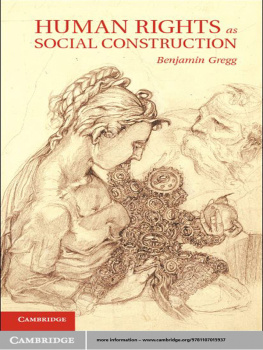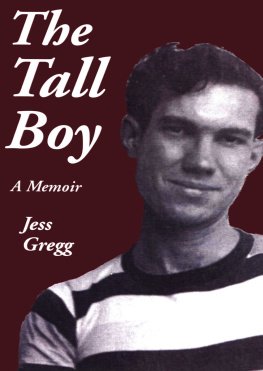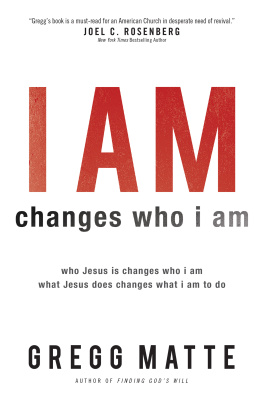Human Rights as Social Construction
Most conceptions of human rights rely on metaphysical or theological assumptions that construe them as possible only as something imposed from outside existing communities. Most people, in other words, presume that human rights come from nature, God, or the United Nations. This book argues that reliance on such putative sources actually undermines human rights. Benjamin Gregg envisions an alternative; he sees human rights as locally developed, freely embraced, and indigenously valid. Human rights can be created by the average, ordinary people to whom they are addressed. And they are valid only if embraced by those to whom they would apply. To view human rights in this manner is to increase the chances and opportunities that more people across the globe will come to embrace them.
Benjamin Gregg teaches social and political theory at the University of Texas at Austin. He is the author of Thick Moralities, Thin Politics: Social Integration Across Communities of Belief (2003) and Coping in Politics with Indeterminate Norms: A Theory of Enlightened Localism (2003). His articles have appeared in Political Theory , Review of Politics , Theory and Society , Polity , Ratio Juris , Comparative Sociology , and International Review of Sociology .
Human Rights as Social Construction
Benjamin Gregg
University of Texas at Austin
CAMBRIDGE UNIVERSITY PRESS
Cambridge, New York, Melbourne, Madrid, Cape Town, Singapore, So Paulo, Delhi, Tokyo, Mexico City
Cambridge University Press
32 Avenue of the Americas, New York , NY 10013-2473, USA
www.cambridge.org
Information on this title: www.cambridge.org/9781107015937
Benjamin Gregg 2012
This publication is in copyright. Subject to statutory exception and to the provisions of relevant collective licensing agreements, no reproduction of any part may take place without the written permission of Cambridge University Press.
First published 2012
Printed in the United States of America
A catalog record for this publication is available from the British Library.
Library of Congress Cataloging in Publication data
Gregg, Benjamin Greenwood
Human rights as social construction / Benjamin Gregg.
p. cm.
Includes bibliographical references and index.
ISBN 978-1-107-01593-7 (hardback)
1. Human rights Social aspects. I. Title.
JC571.G7825 2011
323.01 dc23 2011025073
ISBN 978-1-107-01593-7 Hardback
Cambridge University Press has no responsibility for the persistence or accuracy of URLs for external or third-party Internet Web sites referred to in this publication and does not guarantee that any content on such Web sites is, or will remain, accurate or appropriate.
For Keqin, Nicholas, and Saskia
Acknowledgments
How does one write an acknowledgment? The writer exploits the authorial channel to convey nay, to broadcast a personal message in a voice different from the one he will immediately take up. A Durkheimian twist. As if the self-demanding labor of doing the book gave the writer the privilege and obligation to show publicly that he has a separate, private life and is committed to it, while at the same time those who make up this life have a right to be so recognized. One is reminded of the presence of hand-held wives when husbands accept success or defeat in their effort to win an election (Goffman :298, n. 68).
In that spirit, I am grateful for the critical feedback generously provided by Kathleen Higgins, Gary Jacobson, the late David Sciulli, and above all Ross Zucker, with whom I have debated political theory ever since our paths crossed at Yale decades ago; by insightful audiences at the Universitt Bern, the Europa Universitt Viadrina, the University of Nebraska at Lincoln, and the University of Texas at Austin School of Law; by discussants and critical audiences at various meetings of the American Political Science Association, the Midwest Political Science Association, and the Political Studies Association of the United Kingdom; and by the judicious anonymous reviewers for Cambridge University Press. I also thank the Humboldt Universitt zu Berlin, and my host Klaus Eder, for hospitality during a research visit devoted to sociological theory. I am grateful as well to Keqin Gregg for guidance in Chapter 8's discussion of genetics; to Laura Tendler for editing both sensitive and aesthetic; to Peggy Rote for managing production with patience and efficiency, in equal measure; to Nicholas Gregg, who designed the cover image for a narrative not easily limned in figural terms; to Catherine Zinser of the Blanton Museum of Art for counsel on Netherlandish engravings with Parmigianinesque vocabularies; and to my generous and thoughtful editor, Robert Dreesen.
In other news: originally appeared, in a different version, as Deploying Cognitive Sociology to Advance Human Rights in Comparative Sociology 9, no. 3, pp. 279307, 2010 by Brill. Used with kind permission of Brill.
Introduction Human Rights as Local Constructions of Limited but Expandable Validity
Jeremy Bentham's pungent critique of one conception of rights rights valid independently of all institutions, and valid regardless of whether they are recognized by anyone remains more quotable than any other, even after 170 years or so: Natural rights is simple nonsense; natural and imprescriptible rights, rhetorical nonsense, nonsense upon stilts (Bentham human rights idea emerged, at least in its current status in global political discourse, only in the 1970s rather than, say, with the moral intuitions of venerable and primordial religions, or in the American and French Revolutions, or with the post-Holocaust United Nations(UN) in the 1940s, or with the Universal Declaration of Human Rights in 1947. In Moyn's account, human rights emerged as the next great utopia following the exhaustion, if not failure, of various earlier utopias from which morally needy idealists now sought to distance themselves. Such utopias span quite an arc, from anticolonialist nationalism to communism to humanism to hopeful visions of the nation-state: Born of the yearning to transcend politics, human rights have become the core language of a new politics of humanity that has sapped the energy from old ideological contests of the left and right (Moyn 2010:227).
What Moyn does not contend, but what his account (like other recent accounts) rather than build utopia through maximalist political vision (Moyn 2010:226) more a general slogan or worldview or ideal than a recipe for the displacement of politics through the moral transcendence of politics (Moyn 2010:227). This book embraces politics, eschews moral transcendence, but still provides a distinct vision of human rights.
Human Rights as Politics: Social Construction Without Theology or Metaphysics
I articulate that vision by reconceiving human rights as social construction, and I construct human rights as valid initially only for communities that embrace them. Human rights can be grown locally by their addressees themselves. They would carry an exceptional motivating power, for theirs would be a validity that is indigenous rather than imposed from without or coerced from within. My vision contrasts starkly with much human rights thinking that insists that such rights can be valid only if that validity is immediately universal, indeed a priori. Such thinking tends toward the otherworldly, either metaphysical or theological. I analyze both at length, showing that universal human rights so conceived are demonstrably unattainable, whereas my realistic, locally sensitive, small-bore, quotidian alternative allows for the expansion of validity across diverse cultures and political communities even as it takes account of the unique and particular features of any local environment and any concrete milieu. It allows for human rights universally valid if validity is constructed as mundane, this-worldly, and contingent: as something achieved not given or revealed. By avoiding treacherous metaphysical or theological assumptions, it avoids the hornet's nest of problems they entail. Consider, for example, what might seem to be the single claim most likely to find immediate agreement, everywhere: the widespread idea of a human right to life. Does it mean a right of a human embryo to the life it has? Would the life it has mean a right to be free of genetic manipulation? Might it mean a right of an embryo in vitro to be implanted into a uterus, if a right to life means a right to an uncertain and precarious opportunity for life, to conditions that allow for further development? Is a right to a chance of life (borne by an embryo in vitro) also a right to be free of genetic manipulation? At just what cell stage might the embryo possess this right? As I show, answers plausible and in that sense capable of wide embrace in the twenty-first century are much more likely to be socially constructed than supernatural. metaphysical assumptions would provide human rights foundations that are nothing short of otherworldly. We nature-bound humans, evolved organisms that we are, may be sorely tempted to regard a supernatural basis as the strongest, most objective or secure one possible precisely because it is not dependent on the human beings to whom it is addressed and to whom it would apply. This way of thinking tellingly betrays a deep suspicion about the capacity of humankind for moral behavior. For it suspects that a norm that applies to human beings yet is not created by them is, for that reason , better or stronger or truer than norms of some nonhuman, indeed preternatural provenience.
















